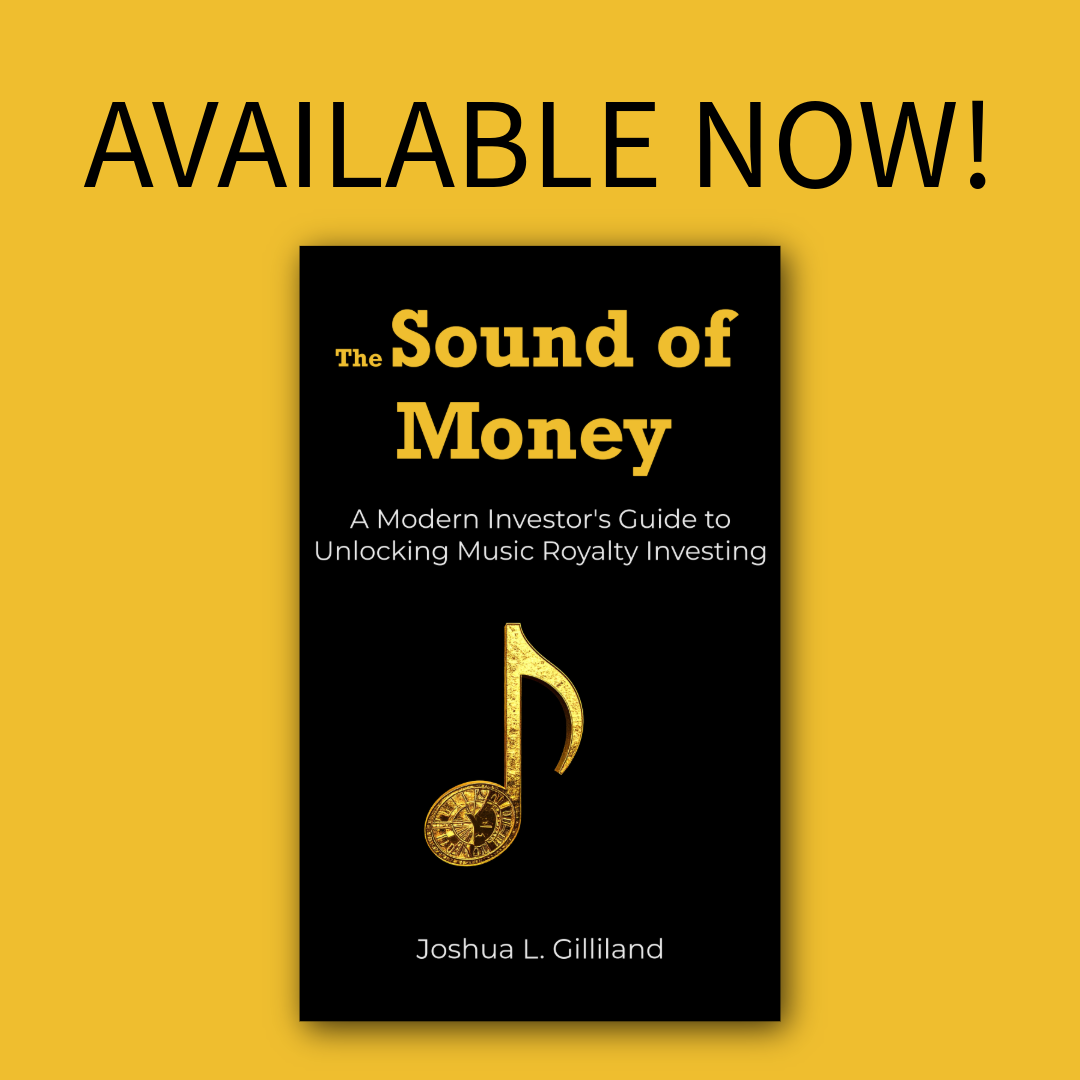6 Reasons Music Royalties Belong in Your Portfolio
In today's uncertain world, finding a truly passive, reliable, and uncorrelated investment can feel impossible. Stocks swing with market sentiment, bonds are at the mercy of interest rates, and as any landlord can tell you, real estate is anything but "passive." If you're looking for an alternative that checks all the right boxes, it might be time to consider one you've likely never thought of: music royalties. Here are six powerful, data-driven reasons why this asset class deserves a spot in a modern investment portfolio.
1. Truly Passive Income We often hear the term "passive income," but very few investments qualify. As a real estate investor, I once had a rental property sit empty, only for someone to break in and cause over $10,000 in damages. As a precious metals investor, I had my entire collection stolen from a safe in my home. Music royalties are the most passive investment I have ever owned. They cannot be trashed or physically stolen. After the initial work of due diligence and acquisition, your primary job is finished. You simply collect the payments.
2. Stable and Predictable Cash Flow While no investment is without risk, the cash flows from a well-chosen, mature catalog of songs are remarkably stable. Unlike volatile stock dividends or rental income, the income from older songs is incredibly consistent. Hundreds of thousands of sources—from a Spotify stream in another country to a radio play in a small town—combine to create a reliable quarterly payment that is often boringly predictable.
3. Competitive, Double-Digit Returns Stability is wonderful, but the returns need to be worthwhile. While past performance is no guarantee of future results, public data from marketplaces like Royalty Exchange has shown average historical returns in the low double-digits, often exceeding 10-13% annually across thousands of assets. A disciplined approach can generate significant, competitive returns.
4. Low Correlation to the Broader Economy This is perhaps the most powerful attribute of music royalties. Their performance has very little to do with what the stock market or the economy is doing. People listen to music in good times and bad. Financial analysts use a metric called "beta" to measure an asset's correlation to the market. A beta of 1 means it moves in lockstep with the market; a beta of 0 means there is no correlation. Research has found the market beta of music royalties to be close to zero, making them one of the purest portfolio diversifiers an investor can find.
5. Significant and Sustained Industry Growth You are not investing in a stagnant market; you are investing in an industry in the middle of a global renaissance. The recorded music industry has experienced over ten consecutive years of growth, driven by the explosion of paid streaming, which now accounts for the vast majority of all revenue. With hundreds of millions of paid subscribers worldwide, the pool of money flowing to rights holders is constantly expanding.
6. Powerful Diversification I saw the power of this firsthand during the market tank of the COVID-19 pandemic. While my stock portfolio was in freefall, the knowledge that I was building a position in an asset class completely uncorrelated to the market chaos gave me a profound sense of stability and confidence. It was a real-time validation of the strategy when I needed it most.
(Conclusion & Call-to-Action) Music royalties offer a rare combination of passive income, stable cash flow, and low correlation that is incredibly hard to find elsewhere. They aren't speculative assets like cryptocurrencies; they are income-generating assets based on real, verifiable consumption.
Want to learn the frameworks for how to find, analyze, and invest in these assets? This is just a small sample of the insights in my upcoming book, The Sound of Money.
Be the first to know when it's released. Join the official launch list for exclusive updates and a sneak peek inside the playbook for music royalty investing.
P.S. For a different perspective on investment wisdom, check out my latest post: You Knew What I Was When You Picked Me Up: An Investor's Parable

